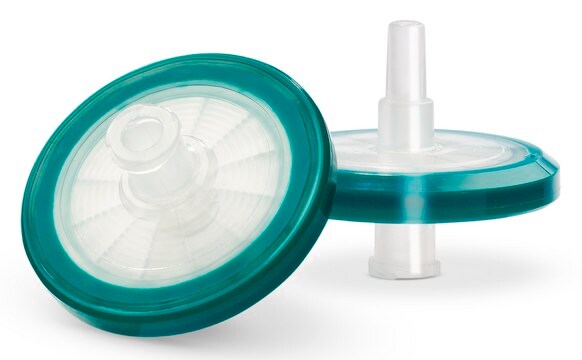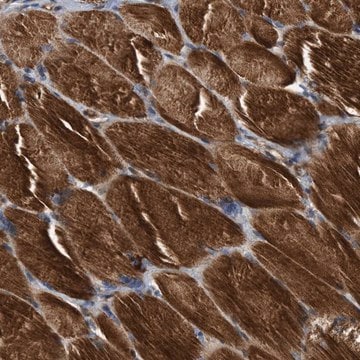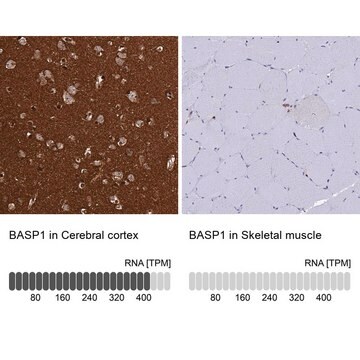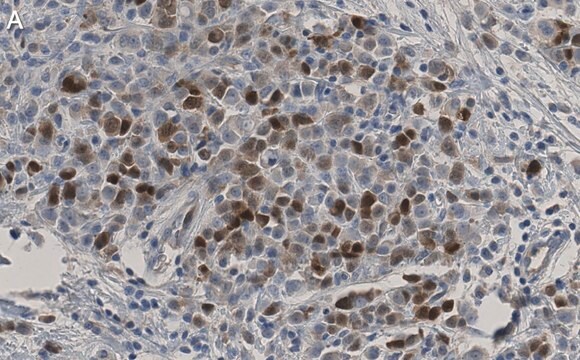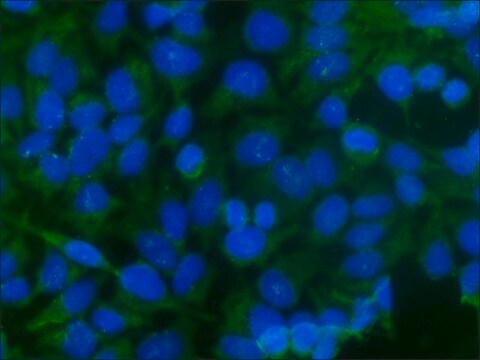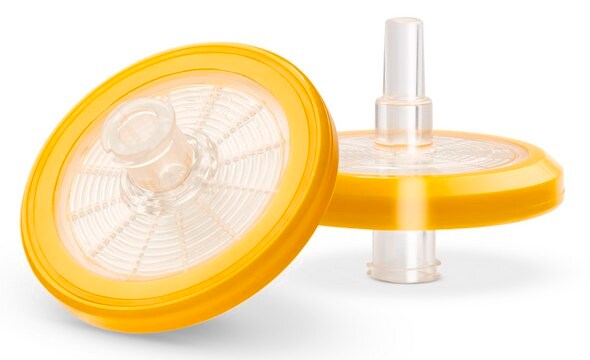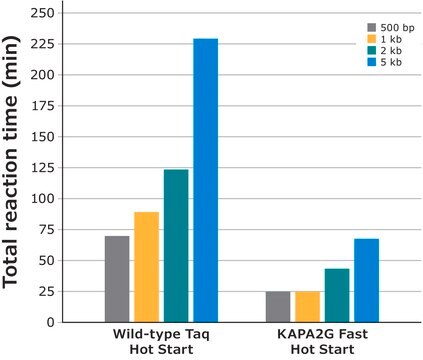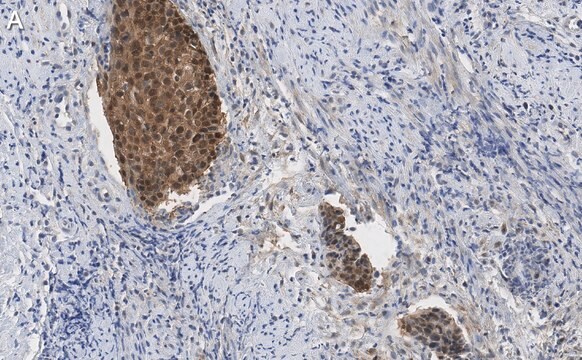General description
We are committed to bringing you greener alternative products, which adhere to one or more of The 12 Principles of Green Chemistry. This antibody is Preservative-free, produced without the harm or sacrifice of animals and exceptionally stable to allow for ambient shipping and storage if needed and thus aligns with "Waste Prevention", "Designing Safer Chemicals" and "Design for Energy Efficiency".
Click here for more information.
ZooMAb® antibodies represent an entirely new generation of recombinant monoclonal antibodies. Each ZooMAb® antibody is manufactured using our proprietary recombinant expression system, purified to homogeneity, and precisely dispensed to produce robust and highly reproducible lot-to-lot consistency. Only top-performing clones are released for use by researchers. Each antibody is validated for high specificity and affinity across multiple applications, including its most commonly used application. ZooMAb® antibodies are reliably available and ready to ship when you need them.
Specificity
Clone 2C11 is a ZooMAb® rabbit recombinant monoclonal antibody that specifically detects Brain acid soluble protein 1 (BASP1/NAP-22). It targets an epitope within 22 amino acids from the C-terminal region.
Immunogen
KLH-conjugated linear peptide corresponding to 22 amino acids from the C-terminal region of human Brain acid soluble protein 1 (BASP1/NAP-22).
Application
Quality Control Testing
Evaluated by Western Blotting in Jurkat cell lysate.
Western Blotting Analysis: A 1:1,000 dilution of this antibody detected BASP1/NAP-22 in Jurkat cell lysate.
Tested Applications
Western Blotting Analysis: A 1:1,000 dilution from a representative lot detected BASP1/NAP-22 in lysates from U87-MG and PC12 cells and Human brain tissue..
Immunohistochemistry (Paraffin) Analysis: A 1:1,000 dilution from a representative lot detected BASP1/NAP-22 in Human cerebral cortex tissue sections.
Affinity Binding Assay: A representative lot of this antibody bound BASP1/NAP-22 peptide with a KD of 1.9 x 10-7 in an affinity binding assay.
Immunocytochemistry Analysis: A 1:100 dilution from a representative lot detected BASP1/NAP-22 in U-87 MG cells.
Note: Actual optimal working dilutions must be determined by end user as specimens, and experimental conditions may vary with the end user.
Target description
Brain acid soluble protein 1 (UniProt: P80723; also known as 22 kDa neuronal tissue-enriched acidic protein, Neuronal axonal membrane protein NAP-22, BASP1) is encoded by the BASP1 (also known as NAP22) gene (Gene ID: 10409) in human. NAP-22 is a neuronal tissue-enriched, calcium-dependent calmodulin-binding, acidic protein which is expressed predominantly in brain. It is located on the external surface of the synaptic vesicle membrane and is involved in the synaptic vesicle cycling. It belongs to a family of growth-associated proteins that include GAP-43 and MARCKS and plays a signaling role in neurite outgrowth and plasticity. Purified NAP-22 binds to liposomes made from phosphatidylcholine and cholesterol and this is dependent on the amount of cholesterol in liposomes. NAP-22 binding to liposomes is inhibited by calmodulin in a dose-dependent manner. Two isoforms of NAP-22 have been described that are produced by alternative splicing. This ZooMAb® recombinant monoclonal antibody, generated by our propriety technology, offers significantly enhanced specificity, affinity, reproducibility, and stability over conventional monoclonal. (Ref.: Manganas, LN., et al. (2021). Sci Rep 11, Article 5546; Maekawa, S., et al. (1999). J. Biol. Chem. 274(30); 21369-21374; Yamamoto, Y., et al. (1997). Neurosci. Lett. 224(2); 127-130).
Physical form
Purified recombinant rabbit monoclonal antibody IgG, lyophilized in PBS with 5% Trehalose, normal appearance a coarse or translucent resin. The PBS/trehalose components in the ZooMAb formulation can have the appearance of a semi-solid (bead like gel) after lyophilization. This is a normal phenomenon. Please follow the recommended reconstitution procedure in the data sheet to dissolve the semi-solid, bead-like, gel-appearing material. The resulting antibody solution is completely stable and functional as proven by full functional testing. Contains no biocide or preservatives, such as azide, or any animal by-products. Larger pack sizes provided as multiples of 25 µL.
Reconstitution
300 µg/mL after reconstitution at 25 µL per vial. Please refer to guidance on suggested starting dilutions and/or titers per application and sample type.
Storage and Stability
Recommend storage of lyophilized product at 2-8°C; Before reconstitution, micro-centrifuge vials briefly to spin down material to bottom of the vial; Reconstitute each vial by adding 25 µL of filtered lab grade water or PBS; Reconstituted antibodies can be stored at 2-8°C, or -20°C for long term storage. Avoid repeated freeze-thaws.
Legal Information
ZooMAb is a registered trademark of Merck KGaA, Darmstadt, Germany
Disclaimer
Unless otherwise stated in our catalog or other company documentation accompanying the product(s), our products are intended for research use only and are not to be used for any other purpose, which includes but is not limited to, unauthorized commercial uses, in vitro diagnostic uses, ex vivo or in vivo therapeutic uses or any type of consumption or application to humans or animals.

